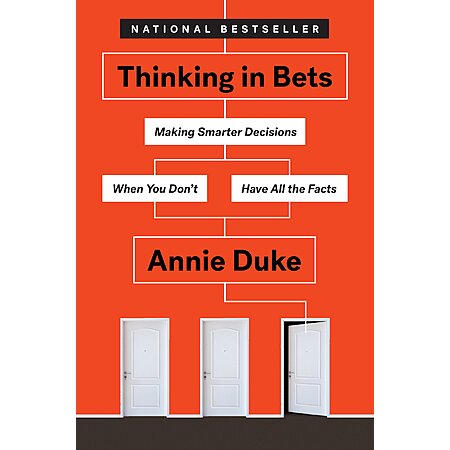expiredphoinix | Staff posted Feb 19, 2025 09:52 AM
Item 1 of 1
expiredphoinix | Staff posted Feb 19, 2025 09:52 AM
Thinking in Bets: Making Smarter Decisions When You Don't Have All the Facts (eBook)
$2.00
$14
85% offAmazon
Visit AmazonGood Deal
Bad Deal
Save
Share

Leave a Comment
Top Comments
16 Comments
Sign up for a Slickdeals account to remove this ad.
https://www.kobo.com/us/en/ebook/...ng-in-bets
Our community has rated this post as helpful. If you agree, why not thank Tozmo
Our community has rated this post as helpful. If you agree, why not thank rajiv
Stay away from her other book How to Decide. From what I understand it was originally supposed to be a workbook for Thinking In Bets, but the publisher talked her into making it into another book despite it covering the same ground.
Sign up for a Slickdeals account to remove this ad.
I missed the 3 dots button for the download. Anything like the 3 seashells from Demolition Man?
The decision fatigue I face at work daily is dragging me down and I really need to actually learn how to get better at making decisions.
Sign up for a Slickdeals account to remove this ad.
Leave a Comment